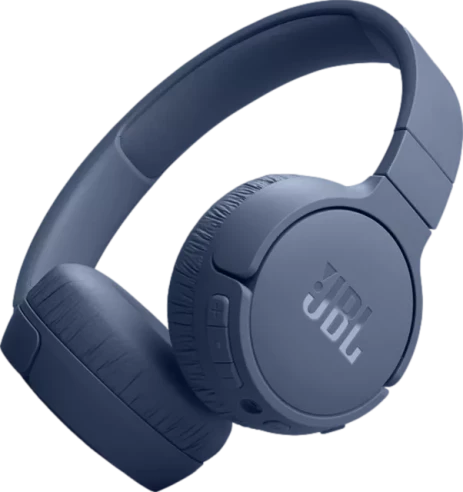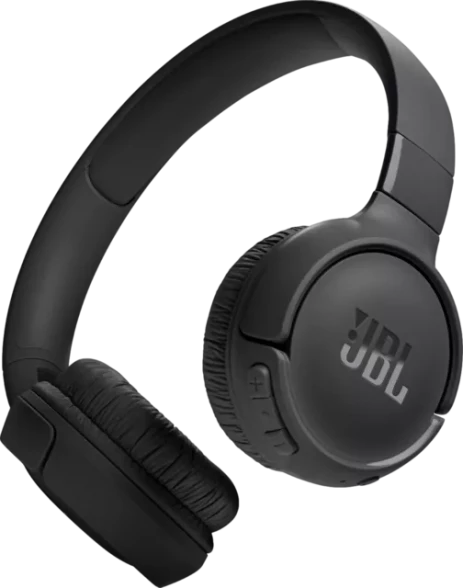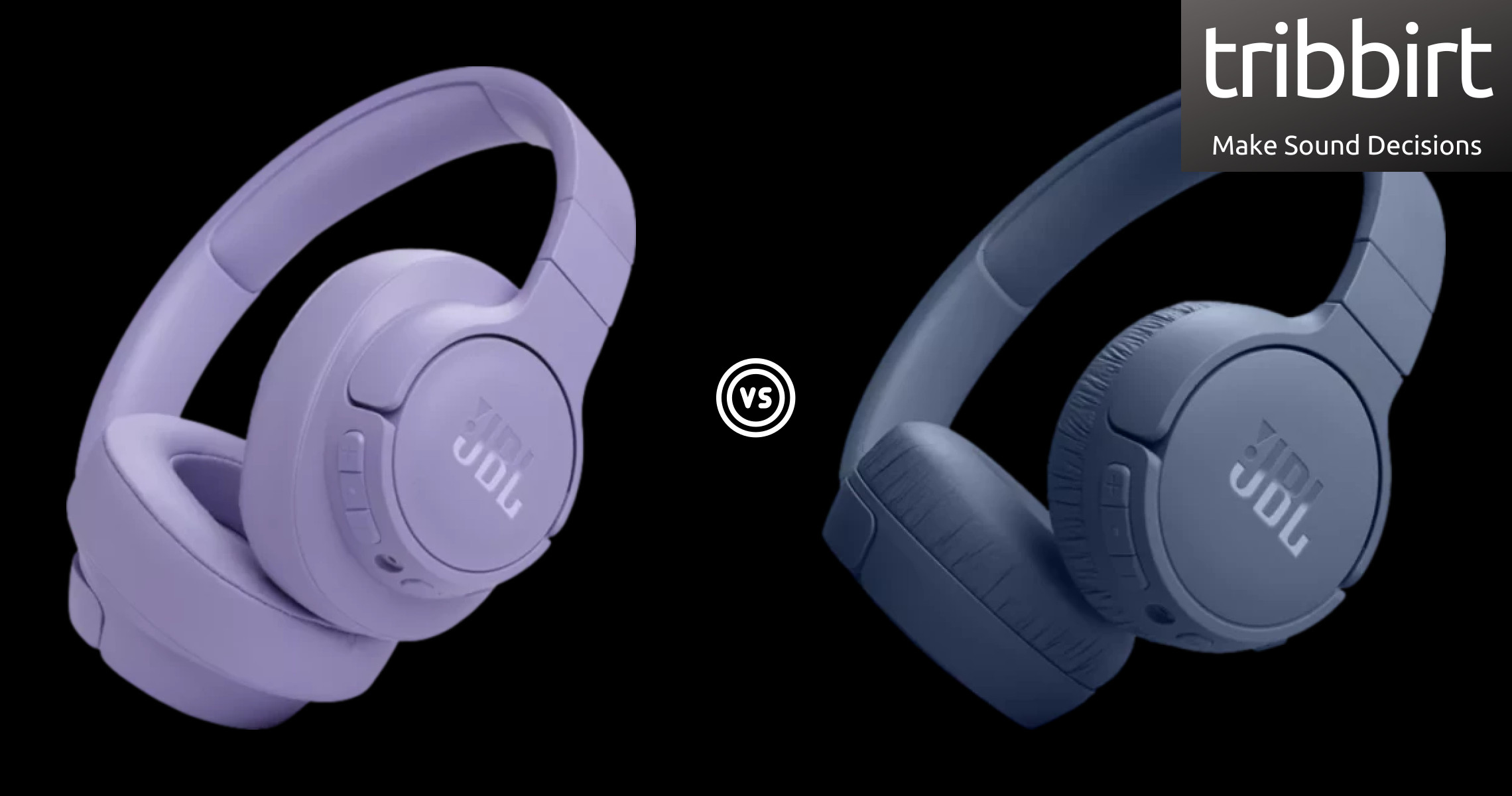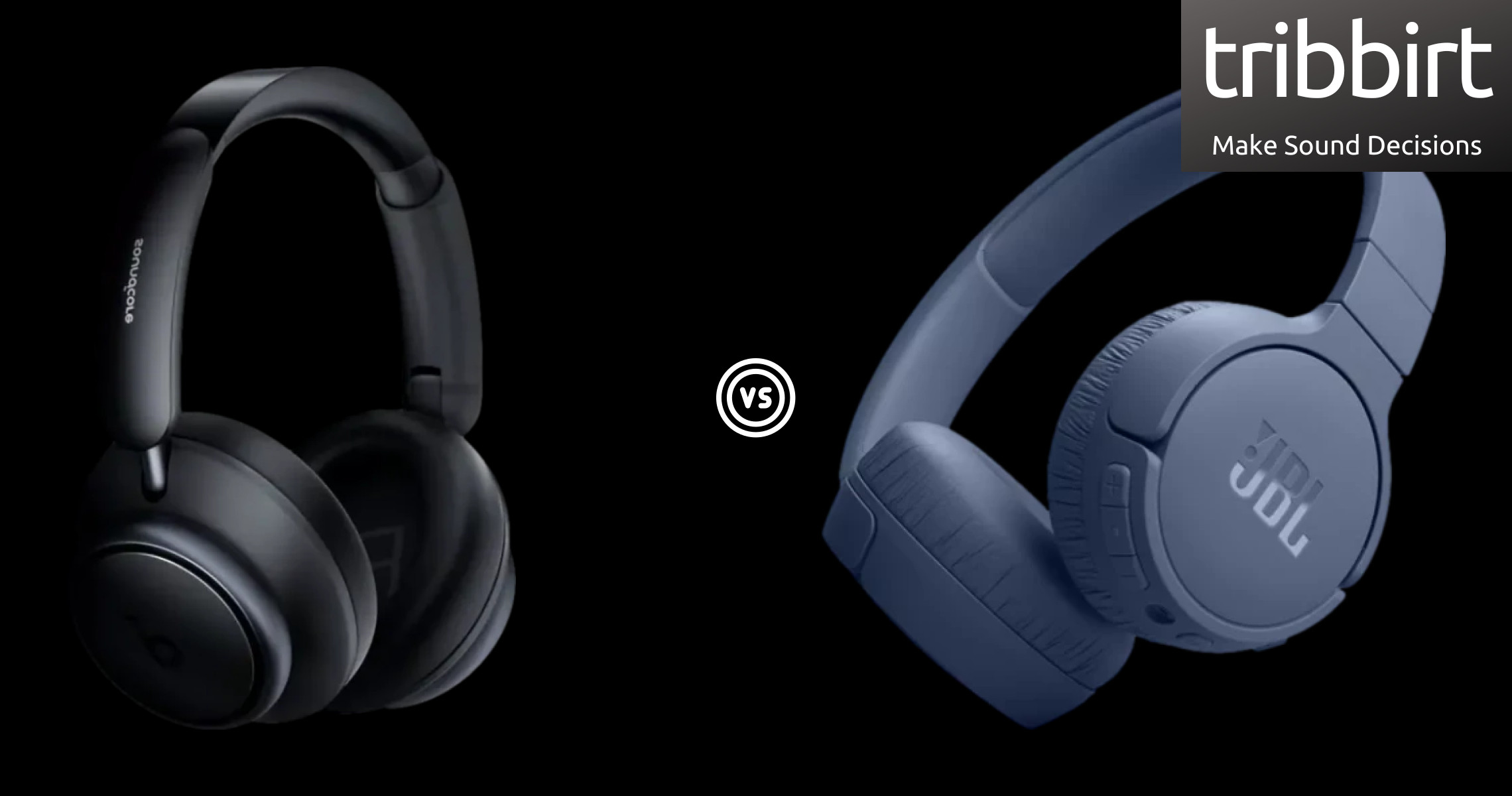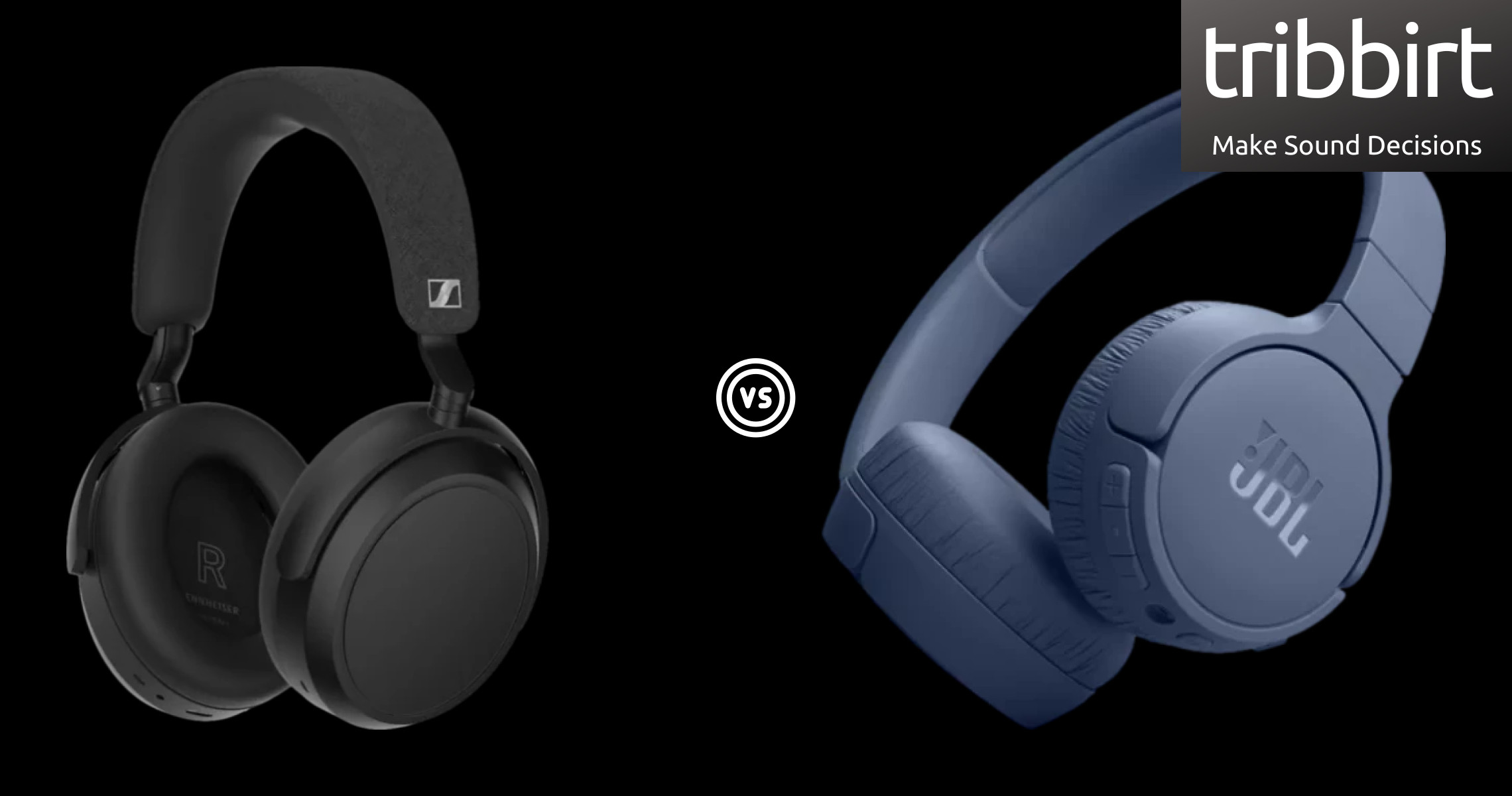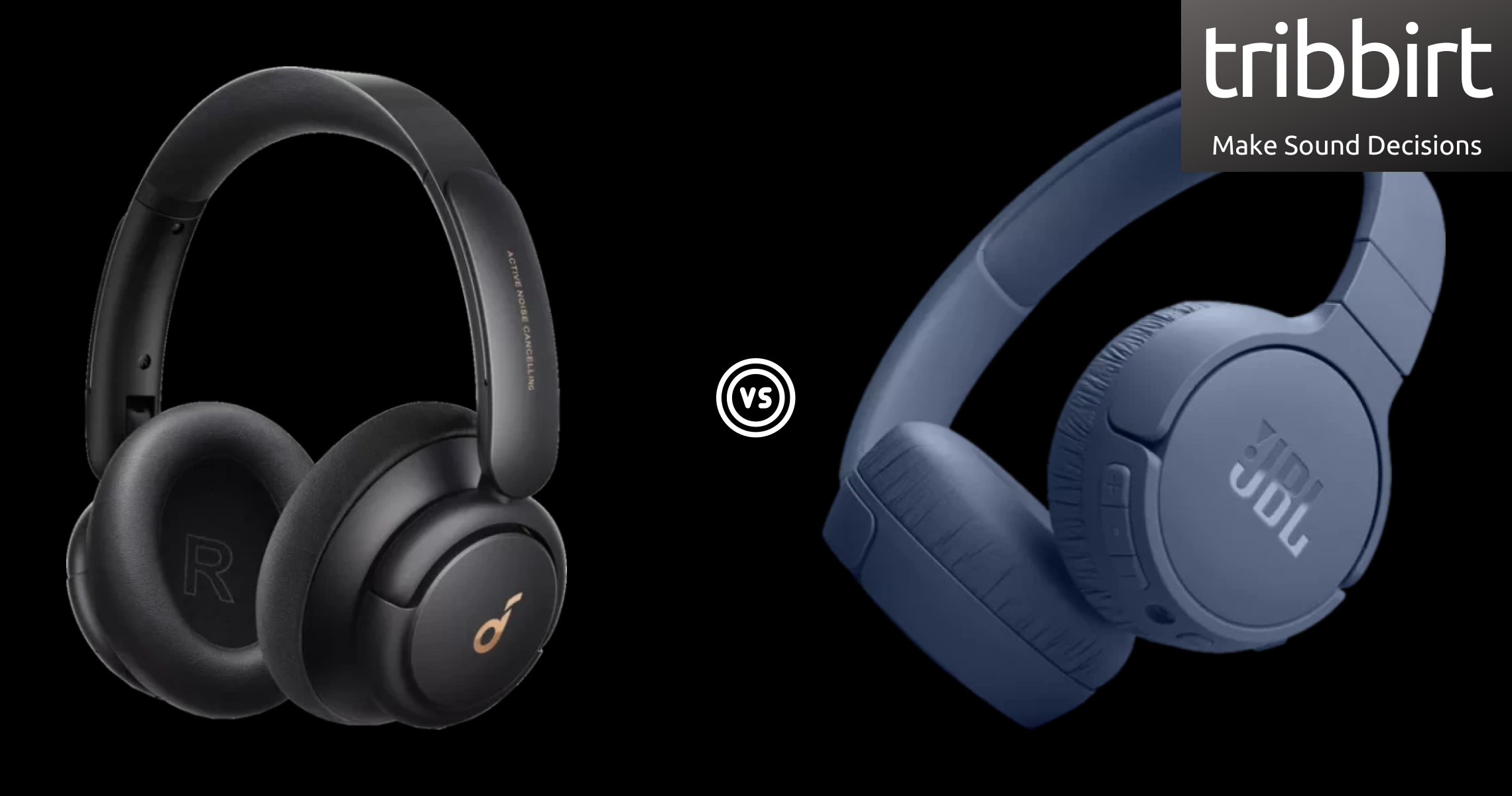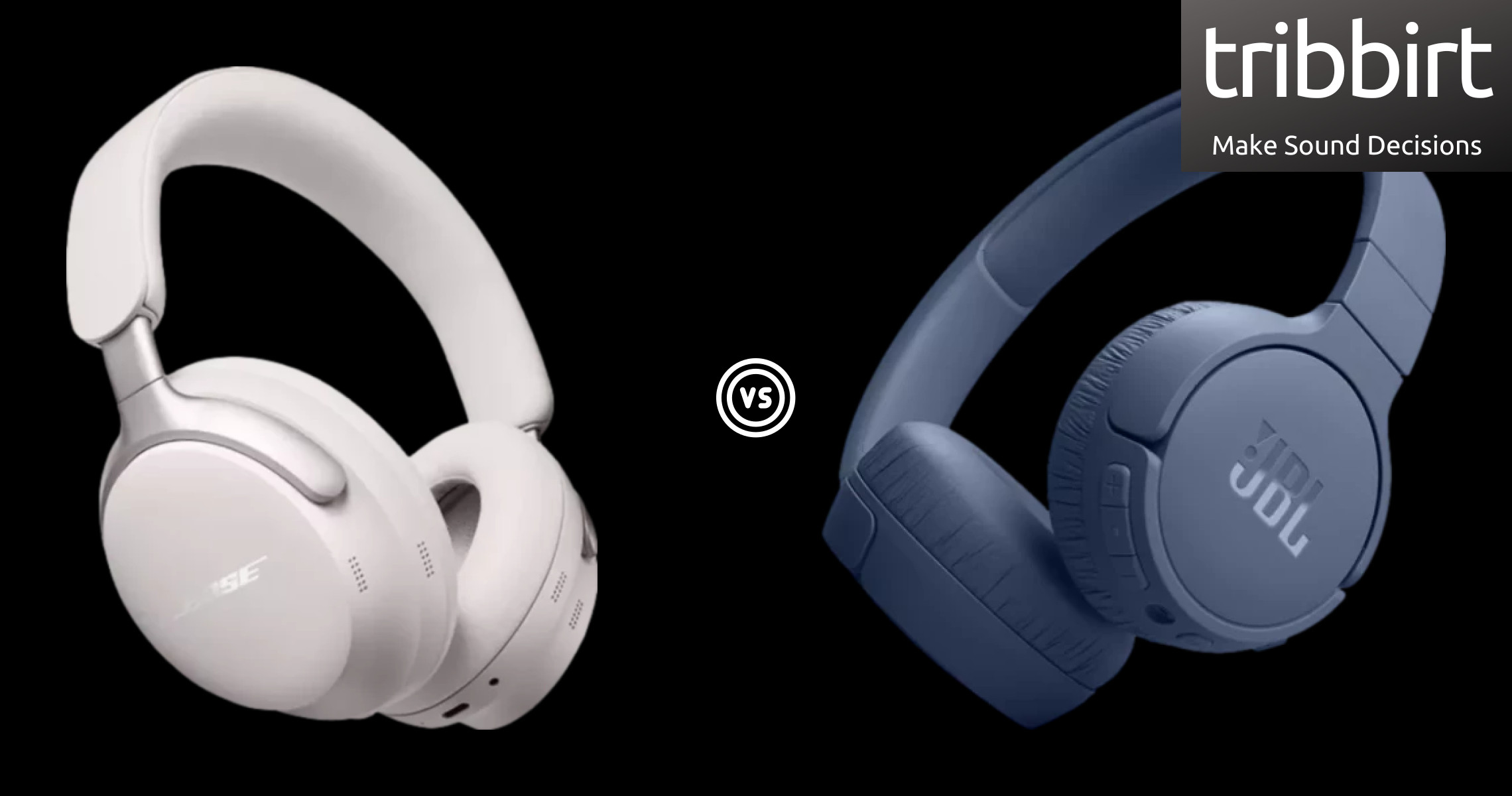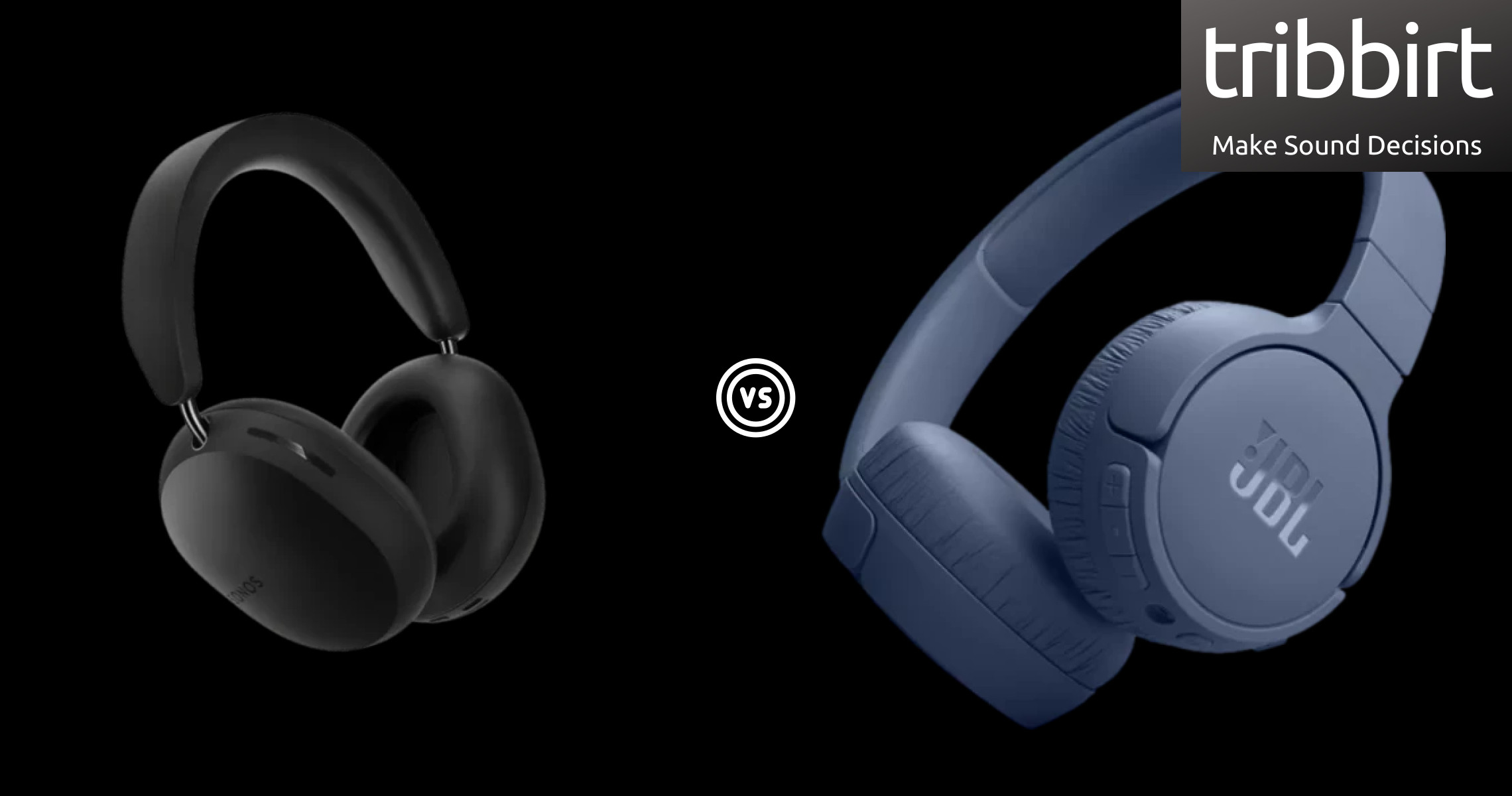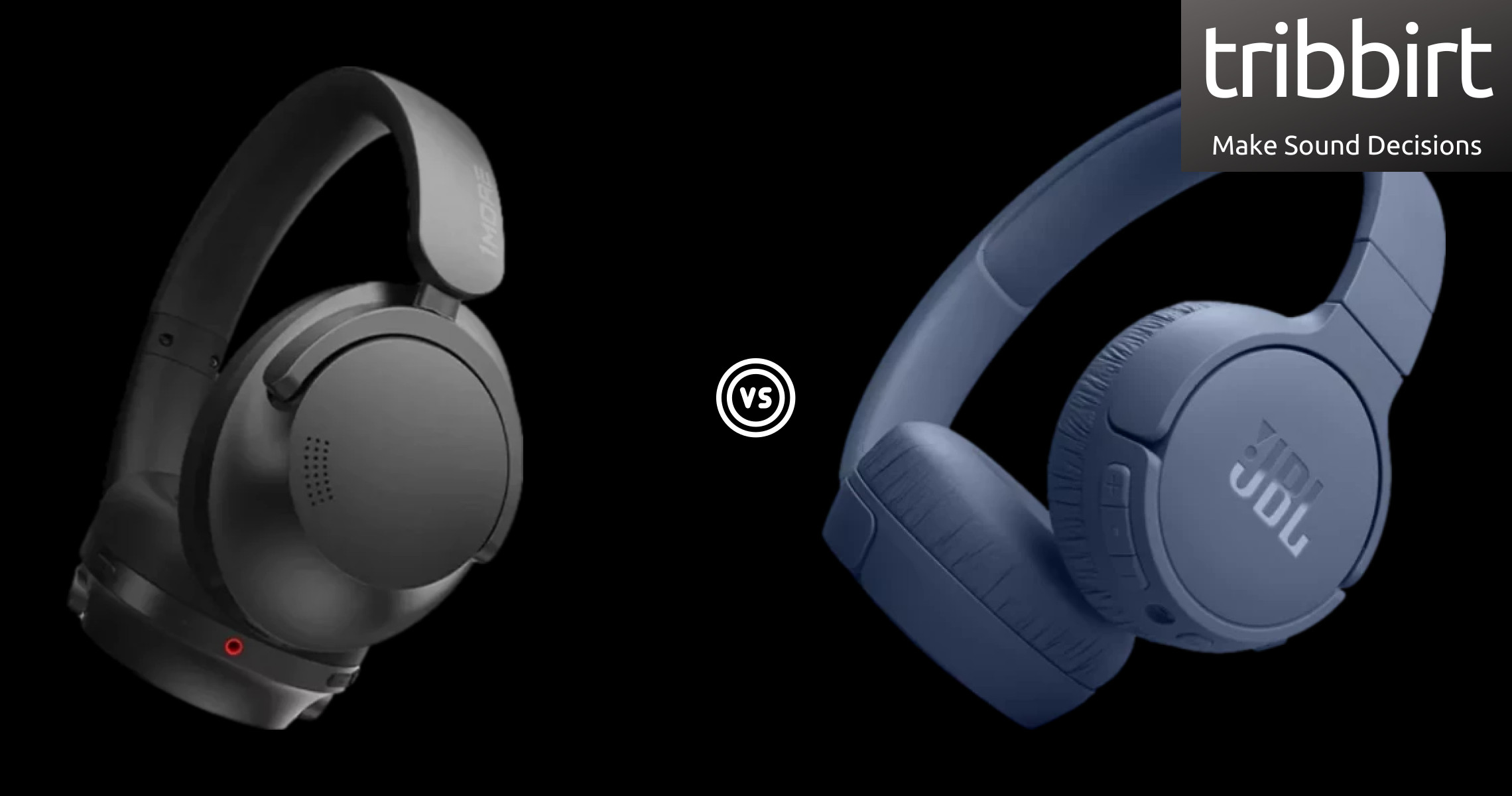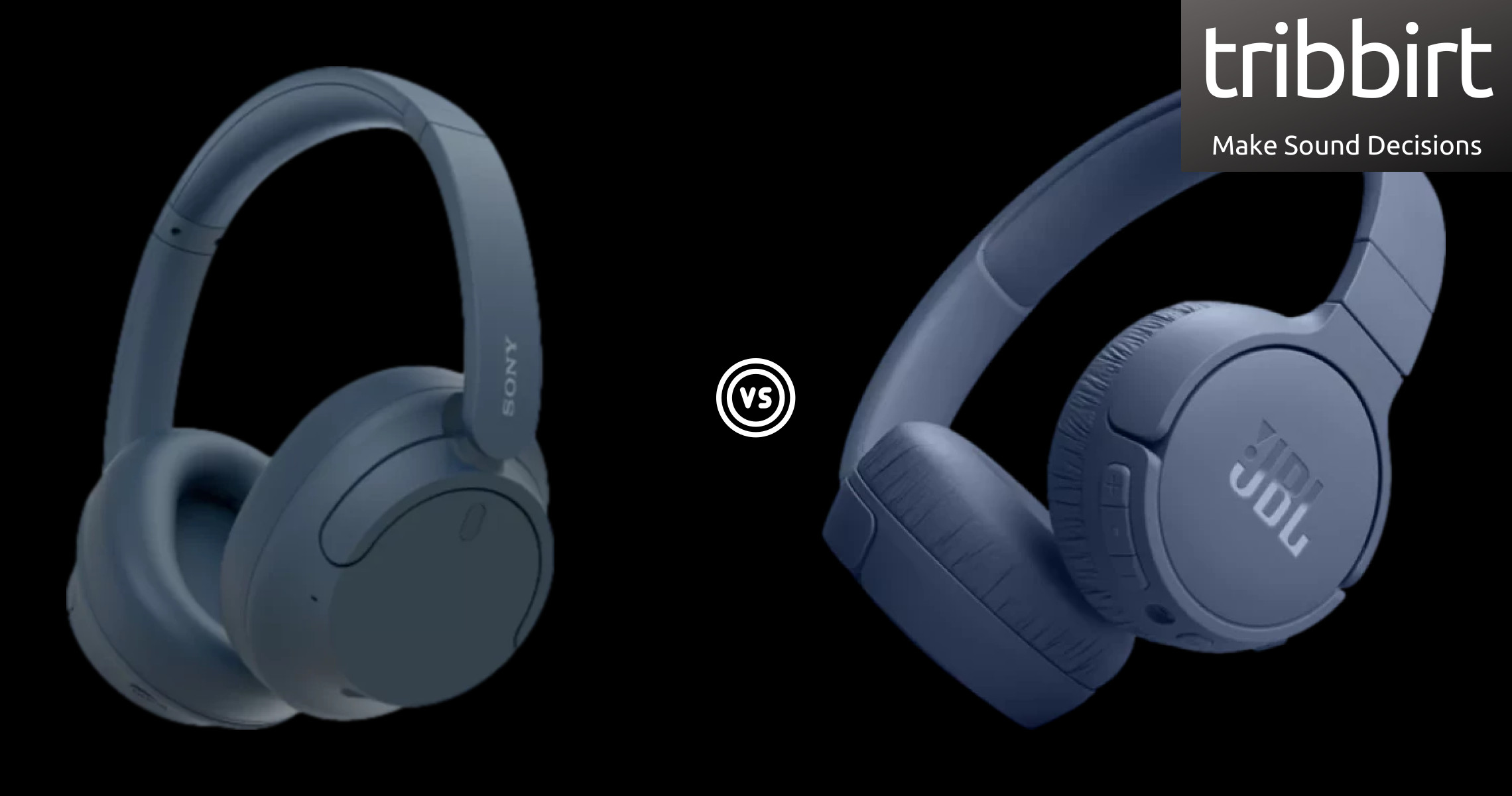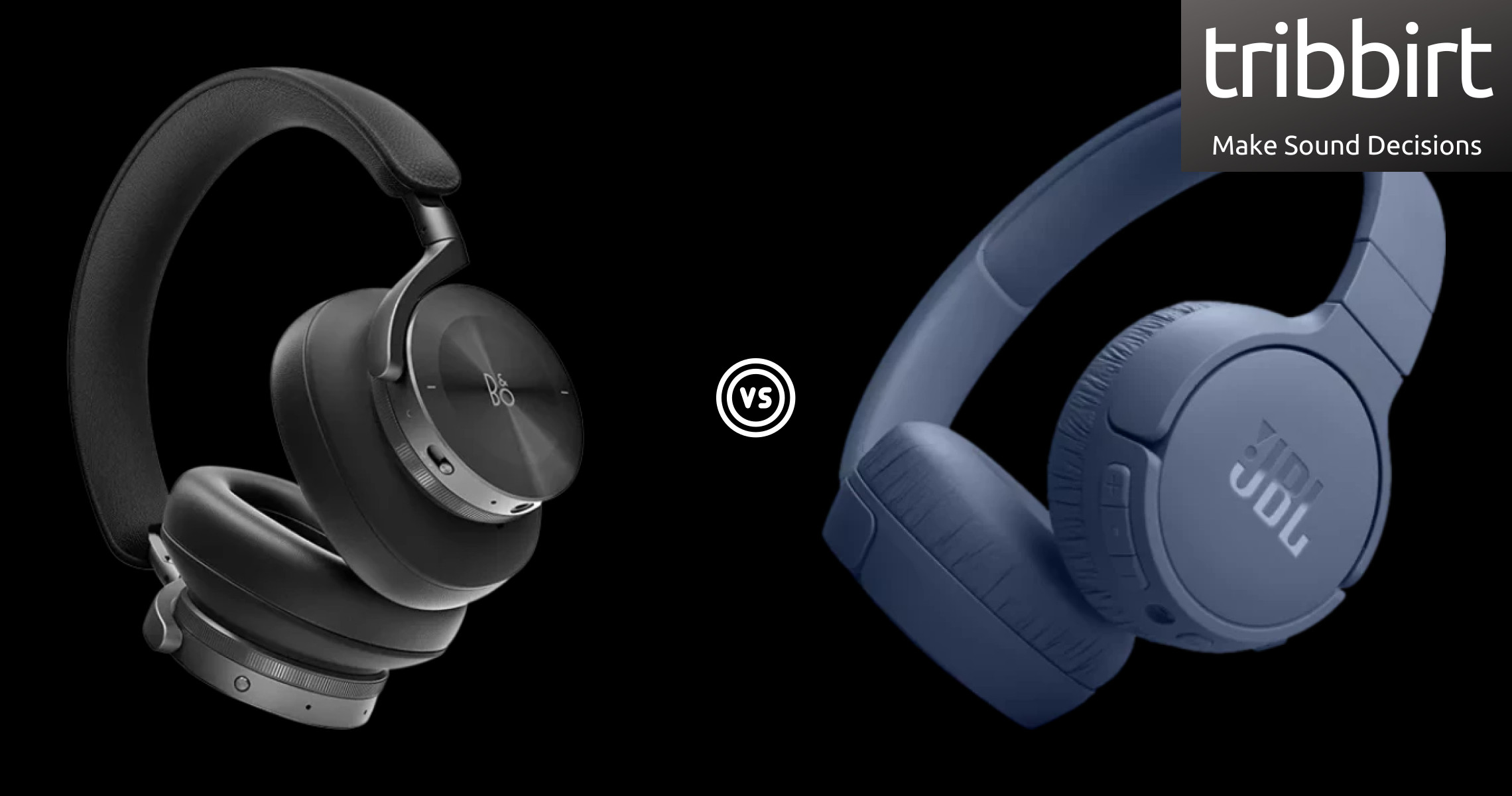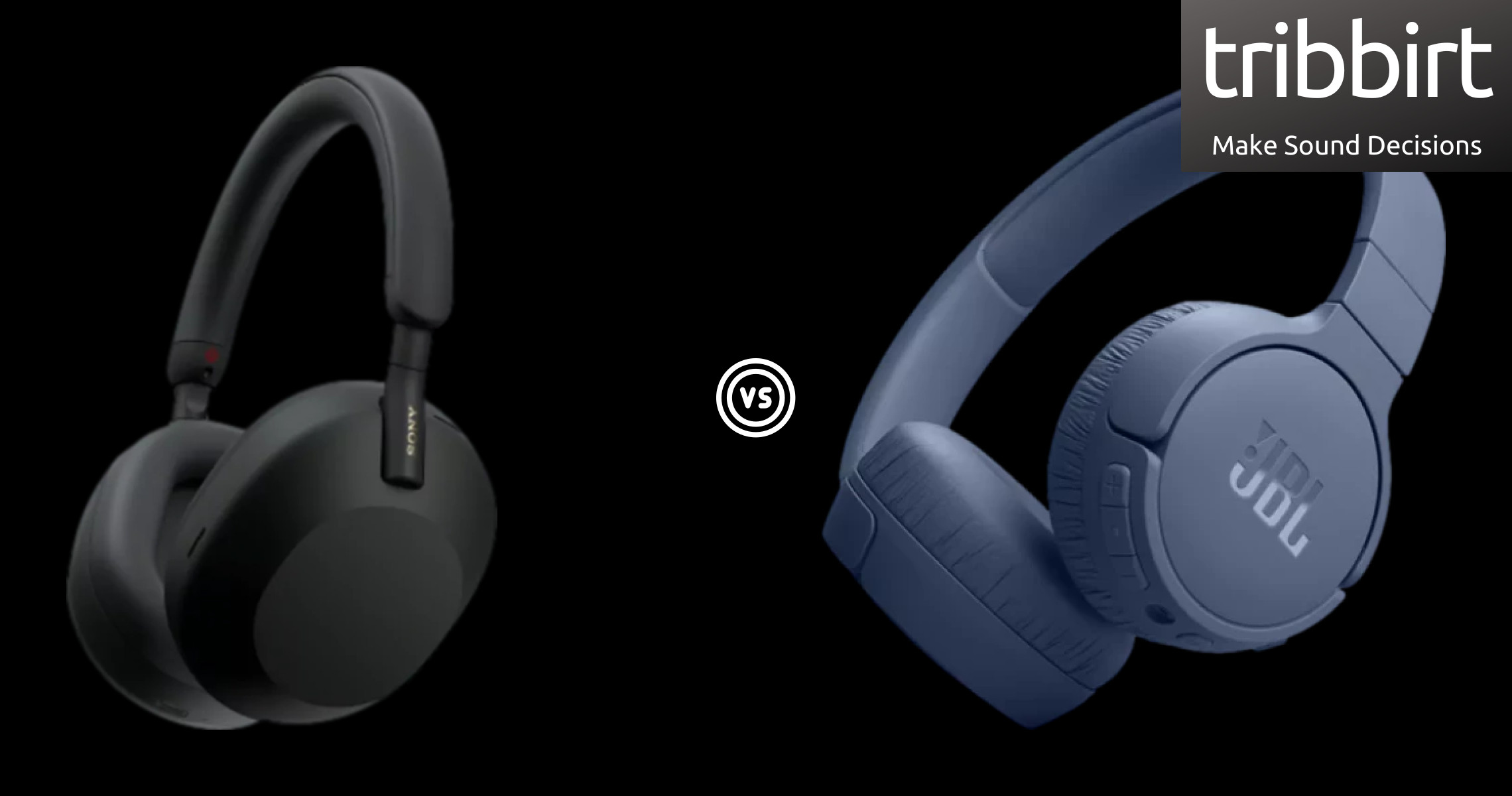JBL 670NC have a weight of 174g, these weigh below 320g, which we consider as the highest average a headphone should weigh for comfort during long use. We prefer a lower weight best because lighter devices are more comfortable to transport. JBL Tune 520BT, at 160g
weigh less than the JBL 670NC with a difference -14g
Detachable cables are cables that have connectors on both ends.
One end goes into your headphone cups, while the other end is inserted into an audio source. Some new headphones, and not just the expensive ones, are coming with detachable cables, JBL 670NC are one of those. With a detachable cable, JBL Tune 520BT too can use alternative cables and if the cable is pulled, it will pop out instead of breaking.
JBL 670NC are foldable, which makes them more portable. Foldable headphones are easier to transport and take up less storage space. The JBL Tune 520BT too can fold up, foldable headphones can reduce their size by 60% to 70% when folded.
Twisted headphone cables can be a great source of annoyance and inconvenience, JBL 670NC's cable is designed to minimize tangling. Constant twisting of the cables can also lead to microfractures in the copper wires, affecting sound quality, or
rendering your headphones defective. JBL Tune 520BT too have a cable designed to help prevent tangles.
A long cable ensures more freedom of movement, but remember that every cable based on the conducting material used has a certain amount of parasitic resistance, inductance, and capacitance. How much depends on the length and construction. JBL 670NC comes with a 1.2meters cable.
JBL Tune 520BT comes with a 1.2meters cable. Almost any cable should be fine in sound quality If you're looking at lengths up to 2 - 3 meters. Over-ear headphones have larger earpads that fit around your entire ear JBL 670NC have a comfortable full-size form with earcups that fully enclose your ears.
This design is loved for its increased sound isolation and the fact that it won't leak sound to your neighbors. JBL 670NC have stereo speakers, what this means is that JBL 670NC's speakers deliver sound from independent channels on both left and right sides, creating a richer sound and a better listening experience. The JBL Tune 520BT also have stereo speakers
Active noise cancellation uses more advanced technology to actively counter noise.
How it works, it detects and analyzes the sound pattern outside and inside the earbud and then inverts the soundwaves to cancel it out. In simple terms, it's like taking +1 outside (noise from your surrounding) and adding -1 inside (counter sound within the device) to make 0 hence "diluting" the noise.
JBL 670NC allow you to listen at lower volume levels, causing less ear fatigue as you don't have to crank up the volume to overcome background noise.
Low-frequency response measures if and how well an audio device reproduces low audible frequencies and if it makes any changes to the signal on the way through. JBL 670NC's lowest frequency is at 20Hz, the lower the low-frequency response, the stronger and juicier the bass. JBL Tune 520BT's lowest frequency is at 20Hz, this implies that
both devices produce equal bass
High frequency response measures if and how well a particular audio component reproduces high audible frequencies and if it changes to the signal on the way through.
JBL 670NC's highest frequency is at 20,000Hz, the higher the high-frequency response, the clearer and crispier the treble. JBL Tune 520BT's highest frequency is at 20,000Hz, this implies that
both devices produce equal treble
Sound pressure is the average variation in atmospheric pressure caused by the sound, the sound level .i.e how loud something is can be perceived differently by different people so we need to have the means to get an objective measurement of sound level expressed in numerical terms.
The sound pressure level, SPL, is the pressure level of a sound, measured in decibels, dB, JBL 670NC's measurement is 98dB/mW.
Devices with a higher sound pressure level are generally louder when supplied with any given audio source. JBL Tune 520BT's sound pressure level measurement is 103dB/mW. The driver unit is basically a mini speaker that produces sound in the device, its size dictates the loudness of the headphone.
JBL 670NC driver unit is 32mm in diameter, bigger drivers are more powerful and can produce better bass. JBL Tune 520BT driver unit is 30mm in diameter,
which means that they have a smaller driver unit than that of JBL 670NC by 2mm
, as many tend to believe that driver units of a bigger size automatically produce better sound quality.
However, large drivers usually have difficulty reproducing high frequencies so yes, larger drivers can generate louder sound, but this does not mean that they deliver better sound.
Impedance is the device's resistance to the electromagnetic current, as electricity flows through a conductor, it experiences electrical resistance that counters the flow of current. The resistance of a wire is measured in ohms. JBL 670NC's impedance is 32Ohms, the lower the impedance, the easier it is to get higher volume and requires less power.
JBL Tune 520BT's impedance is 32Ohms. The impedance of earbuds is the electrical resistance of the driver unit present on the inside. If your headphones play wirelessly, cancel ambient noise, or enhance your listening experience with active features, their battery life will reduce over time.
The device's battery life is given by the manufacturer, with longer battery life, you get to use it for longer and have to charge the device less often. JBL 670NC's battery life is 70 hours
JBL Tune 520BT's battery life is 57 hours. Each time you recharge your headphones, they get a little less listening time.
The effect is barely noticeable at first. But over a few years, you may find that your device, no longer plays for long like it used to. It takes 2 hours to fully charge the JBL 670NC's battery.
It is recommended to fully charge the battery before using the headphones for the first time or when they have been unused for extended periods. JBL Tune 520BT takes 2 hours to fully charge the battery
JBL 670NC have a battery level indicator, an indicator shows you when the device has a low battery. The battery indicator lights indicate the charging status of your headphones.
JBL Tune 520BT too have a battery level indicator, charging indicators allow you to determine the charging state of your headphones, whether fully charged, or the battery is running low. Battery power, or battery capacity, represents the amount of electrical energy that a battery can store. JBL 670NC's battery power is 690mAh, more battery power can be an indication of longer battery life.
JBL Tune 520BT's battery power is 450mAh. A rechargeable battery is a type of electrical battery that can be charged, discharged into a load, and recharged many times, as opposed to a disposable or primary battery, which is supplied fully charged and discarded after use. JBL 670NC's battery can be recharged and used over again.
The JBL Tune 520BT too have a rechargeable battery. JBL 670NC can be used wirelessly, wireless devices allow you more freedom of movement not restricted by a cable. The JBL Tune 520BT also can be used wirelessly
2.4GHz wireless is used for devices such as headsets such as the JBL 670NC, keyboards, and mice similar to Bluetooth but with a proprietary radio frequency.
It typically offers better performance than Bluetooth, with low latency and good stability. Bluetooth is a wireless technology standard that allows data transfers between devices placed in close proximity, using short-wavelength, ultra-high frequency radio waves. JBL 670NC has a v5.3
JBL Tune 520BT has a Bluetooth version of v5.3.
Newer versions provide faster data transfers. JBL 670NC support USB TYPE-C, an industry-standard connector for transmitting both data and power on a single cable. The USB-C plug is now part and parcel of most current laptops, phones, and tablets, it features reversible plug orientation and cable direction.
JBL Tune 520BT too have USB TYPE-C
JBL 670NC support AAC, a codec that is used for Bluetooth audio. It supports 24-bit audio at 250kbps. Because it uses psychoacoustic modeling, it can provide better results than other codecs at a similar bit rate.
The JBL Tune 520BT support AAC as well. Designed to be the successor of the MP3 format, AAC generally achieves higher sound quality than MP3 encoders at the same bit rate. Bluetooth is a short-range wireless technology standard that is used for exchanging data between fixed and mobile devices over short distances.
The JBL 670NC can connect at a 10meters distance via Bluetooth or infrared to another device. The JBL Tune 520BT can connect at a 10meters distance via Bluetooth
Being an industry standard audio plug, a standard 3.5mm male connector is suitable for use with all MP3 players and computer sound cards. This means that it is commonly used in stereo headphones to your phone or connecting your phone to an external amplifier, sound bars, your car radio, etc.
JBL 670NC has this connector giving it a wider range of connectivity with most of the sound devices out there. All plugs have at least a tip and sleeve with the number of rings that stand as a differentiating factor. JBL 670NC have only 1 microphones, more microphones result in better sound quality and enable the device to filter out background noise.
The JBL Tune 520BT microphones are only 2. JBL 670NC use a noise-canceling type of microphone, these microphones are designed to filter out background noise from the desired sound. Especially useful in noisy environments.
JBL 670NC support ambient sound mode, which uses microphones to pass through ambient noises so that they can still be heard. It’s useful when you want to listen to music but also be aware of what’s happening around you, for example when you’re having a jog but would still want to be able to hear traffic. JBL 670NC support multipoint, which allows you to link to more Bluetooth devices and switch between them.
For example, you can easily switch calls from one device to another without having to manually disconnect and reconnect. The JBL Tune 520BT support multipoint count. Bluetooth multipoint would come in handy because you can be on one call without missing notifications coming from another device.
There is a control panel on the JBL 670NC body, so you can easily access the volume control or remote without having to interact with a cable or another device it's connected to. The JBL Tune 520BT too have a control panel on them. JBL 670NC can be used as a headset.
A headset is one headphone or pair with a built-in microphone. Headsets can be used for apps that require communication i.e. Zoom, Google Meet, Skype, games with voice chat, mobile phones, etc.
JBL Tune 520BT can be used as a headset. since they have a built-in microphone
Carrying headphones without a case, or putting them in bags without a casing can easily put them at risk of getting damaged. The JBL 670NC come with their own special case or pouch, which is useful for safe transportation.
